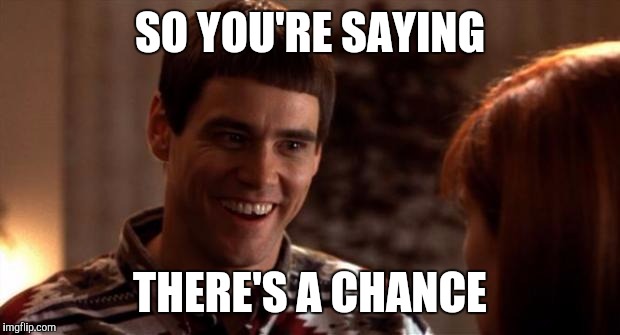So... you like FPI? Aside from that, I have little understanding for what your point was. You seem to view FPI solely as a prism through which to view one game between two opponents. OK, I get it, it's not exactly rocket science to look at FPI % chances between team A and team B.
If you think it's that simple, fine, but don't be @'ing me with your Fcks, bro.
I get, and acknowledged in my quoted post, that there is a homer factor when looking at one's own team.
Still doesn't explain FPI putting ND at 21.7 and Miami at 16.5. Two teams with identical records over the last 13 games, with similar offseason attrition and returning players. The one projected to lose by 5 killed the other one just four/five games ago.
Let me know when your next doctorate course on probabilities and statistics opens for registration and I'll be sure to get in on it. Until then, I'll pass on the lecture. I get it. It seems to me you're trying to make some other kind of statement here about how ESPN isn't biased? I'm not sure what that has to do with my post.
As I said, I can't (and don't care to) dispute statistics that show that, over the course of a season, FPI is a good indicator of the likely result of a given game. But what are the inputs they use? What data suggest what is likely to happen?
How is a Notre Dame team that eeked out a win over LSU by 4 in the last game that either team played, 11.3 points better than that same team?
My entire point was that FPI still appears to me to contain flawed data and/or biases that result in outliers not accurately represented by the formula. These outliers may not significantly impact the formula's success in suggesting probabilities of outcomes of individual matchups, but they sure look odd sometimes when presented as a ranking. Until ESPN "opens the source code", I don't see why we should put any faith in it. But, I'll bet you FPI will be used in many many arguments about which teams should and should not make the playoffs.
